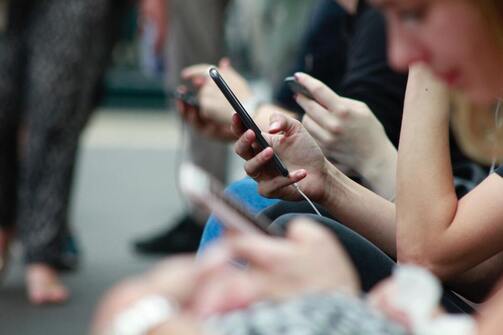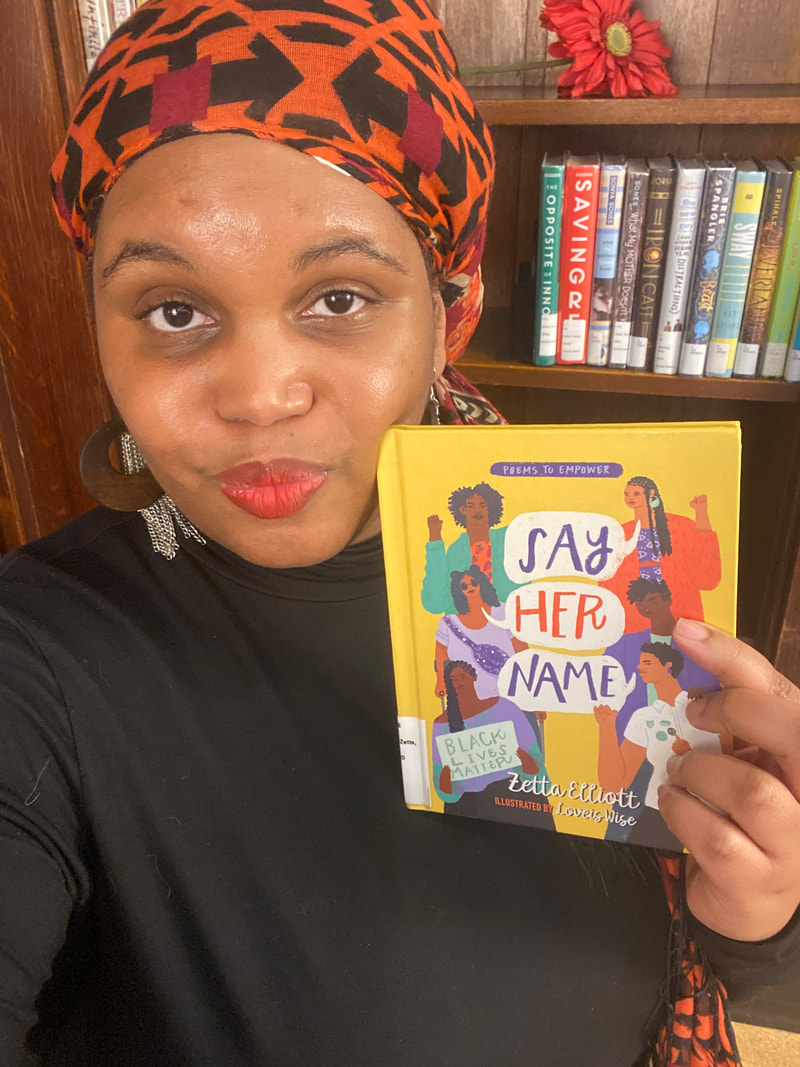|
This blog post will examine an article from ReachOut that looks at the benefits social media presents to young people.  Social networking sites have gained popularity over the years and have become an integral part of young people’s lives. This is especially true now during a world pandemic where social media has played a key role in keeping families and friends connected. I chose this article because of its relevance to what we are experiencing now and how the internet and social media are playing unique roles in young people’s lives. When the world was on lockdown people turned to social media to stay connected to family and friends. School became virtual and young people turned to the internet to keep in touch with news, information, social engagement, and relationships. “Social networking services can be used for organising activities, events, or groups to showcase issues and opinions and make a wider audience aware of them.” (ReachOut) This could be seen with the Black Lives Matter Movement and how people organized timeline blackouts on Instagram and Facebook to highlight police violence. Suddenly the world realized that the issues in America with racism, police violence, and death had reached an all time high. Before the internet these deaths happened silently now they are broadcast worldwide. With school becoming virtual, young people had to experience learning differently. “People can learn through using social media such as Facebook, YouTube, and Flickr, and in multiplayer gaming environments. Social media, including gaming environments, provide platforms for intellectual exploration, the exchange of ideas, and the communal construction of projects. Students can get significant feedback from their peers using social media, and they can learn skills by building things together.” (Greenhow, 2016.) In the book by Greenhow, he talks about how the world is going towards a digital future and how it won’t happen overnight. Like the article by ReachOut it highlights the benefits of having young people being able to develop ideas and discover others who have similar interests or thoughts. Though social media has its benefits, it also has a dark side. “Teens who use social media and similar platforms excessively may also develop addictive behaviors, especially when they have fewer offline social ties and suffer from social anxiety. These addictive behaviors often lead to poorer mental health and an increased risk of identity theft via malicious profiles.” (McHugh, B., Wisniewski, P., Rosson, M., & Carroll, J. 2018.) There is also a digital divide where some young people may not have access to social media. Overall, there are more people now more than ever using social media and the internet to stay connected. “Young people’s social experiences and relationships play a crucial role in their decision to use certain social media platforms and their modes of engagement in these spaces. Stevens et al. (2016) describe young people’s online communities as their digital neighborhood; within these carefully curated digital neighborhoods, social media can also be seen as a “super peer” that has the ability to influence behavior, shift attitudes, and shape cultural norms.” It’ll be interesting to see as time goes on if young people can achieve equitable online spaces. Especially with what is happening in the world today. ReferencesBrough, M., Literat, I., & Ikin, A. (2020). “Good Social Media?”: Underrepresented Youth Perspectives on the Ethical and Equitable Design of Social Media Platforms. Social Media + Society, 6(2), 205630512092848–. https://doi.org/10.1177/2056305120928488
Greenhow, C., Sonnevend, J., & Agur, C. (2016). Education and social media : toward a digital future . The MIT Press. McHugh, B., Wisniewski, P., Rosson, M., & Carroll, J. (2018). When social media traumatizes teens: The roles of online risk exposure, coping, and post-traumatic stress. Internet Research, 28(5), 1169–1188. https://doi.org/10.1108/IntR-02-2017-0077 ReachOut. (n.d.). Benefits of internet and social media. Retrieved March, 12, 2021, from Canvas. Stevens, R., Dunaev, J., Malven, E., Bleakley, A., Hull, S. (2016). Social media in the sexual lives of African American and Latino youth: Challenges and opportunities in the digital neighborhood. Media and Communication, 4(3), 60–70
0 Comments
This blog post will examine Yachot’s article on internet privacy and iPhone’s legal case with the government.  Many people choose iPhones for their unparalleled privacy. From users to techies Apple has become a brand to depend on. I can remember when the legal showdown began with the government, but Apple’s stand made me pay attention to the brand itself and eventually informed my choice to switch to Apple. I chose this article because it discusses how this case is about the implications of global cybersecurity and basic freedoms. If you want to start a healthy debate, mention that your phone is the best. Android and iPhone users will chime in. What are the real differences between the two when it comes to security and privacy? "One of the primary differences between iOS and Android is the application distribution and vetting models. IOS has a single application store, iTunes, that customers can download applications from. While Apple is not perfect, they have executed better than Google in the application vetting process while attempting to limit malware distribution." (Messmer, 2012) Apple has proven that its security keeps out hackers that seek to find information about people. As the article stated, “But once the government secures a precedent to force a company to vouch for an update that it knows is actually insecure malware, users will stop trusting automatic updates. After all, how would anyone be able to trust an update from Apple when the public knows that the government might be directing the insertion of vulnerabilities into new software, even when it’s signed by Apple?” (Yochot, 2016). Apple isn’t only thinking about unfixed software they are also thinking of the global implications of brokered trust. Apple is uniquely positioned to keep out foreign governments and cybercriminals that protect data and information they collect on all of their users. “Apple rejects the main underlying ethical assumptions detailed here so far. It argues that if it weakened the encryption software so that the government could surveil phones (put in a ‘backdoor’), many millions of people all across the world would lose not just their privacy but also have their security endangered.” (Etzioni, 2018) While Apple has its strengths many people question what Apple does with the data it collects on its users. A trade for cybersecurity. There are some that even criticize the legitimacy of Apple’s claims. “Apple's sandboxing technology restricts iPhone applications to operating system resources with a list of deny/allow rules at the kernel level, but these and other permissions are "way too loose," and "Apple should not claim that an application cannot access data from another application," said Seriot, who works as an iPhone programming trainer at a company called Sen:te.” (Messmer, 2010) However, these criticisms of Apple are outdated as they have proven time and again to be the leaders in an unparalleled system creation. Apple may not be the best tech with the most advancements as competitors are keeping up and somewhat surpassing the company with innovative and new ideas. But Apple still stands out when it comes to the protection of its data and user information. It isn’t Apple people have to be skeptical of, it is in applications where security is compromised. ReferencesEtzioni, A., & Etzioni, A. (2018). Apple: Good Business, Poor Citizen? Journal of Business Ethics, 151(1), 1–11. https://doi.org/10.1007/s10551-016-3233-4
Messmer, E. (2010). Apple iPhone security, privacy claims exaggerated, researcher says; Black Hat presentation discusses iPhone privacy and security mechanisms. Network World. Messmer, E. (2012, December 3). Apple iOS vs. Google Android: It comes down to security; Android seen as more vulnerable but some say its flexibility can mean more security options. Network World, 22. https://link.gale.com/apps/doc/A310686934/AONE?u=tel_a_utl&sid=AONE&xid=c413561b Yochot, N. (2016). 7 Reasons a Government Backdoor to the iPhone Would Be Catastrophic. ACLU. https://www.aclu.org/blog/privacy-technology/internet-privacy/7-reasons-government-backdoor-iphone-would-be-catastrophic |
Library SisHey Ya'llI'm Sahara (Sista SOLS) a information professional that has working in public & academic library spaces. Currently, I am a library resident at Clemson University. Here you'll find my residency experience, thoughts on articles, research findings, and story files from what I hope is a fresh perspective. Archives
December 2023
Categories |


 RSS Feed
RSS Feed
